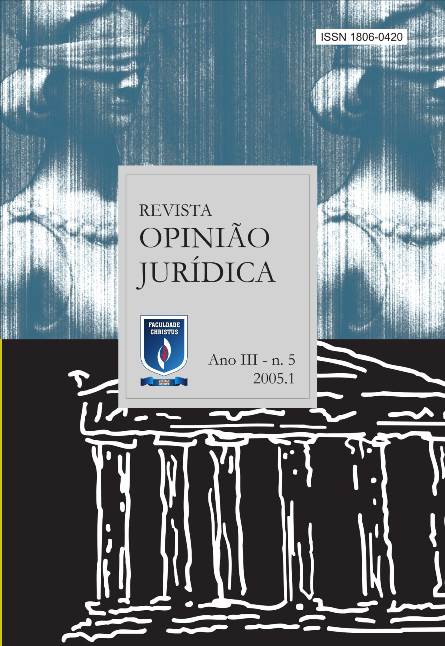PRINCÍPIO CONSTITUCIONAL DA IGUALDADE E O DIREITO DO TRABALHO
DOI:
https://doi.org/10.12662/2447-6641oj.v3i5.p49-81.2005Keywords:
Princípio constitucional, Igualdade, Liberdade, Direito fundamental, Direito do Trabalho, Flexibilização,Abstract
O princípio da igualdade perante a lei por muito tempo foi identificado como garantidor da concretização da liberdade. Aos poucos se percebeu que para tal fim não bastava apenas a igualdade formal perante a lei. Era necessária a igualdade na própria lei. Embora previsto constitucionalmente em nosso país desde a Constituição Política do Império (1824), a igualdade formal passou a ser também material somente através da Carta Magna de 1988 (caput do art. 5º), constituindo-se como um dos direitos fundamentais, protegidos como cláusulas pétreas (art. 60, § 4°, IV). Sua importância se acentua diante do questionamento suscitado
quanto à constitucionalidade, ou não, das normas trabalhistas flexibilizadas em curso no Brasil.
Downloads
Published
How to Cite
Issue
Section
License
CESSION OF COPYRIGHTS
The submission of articles to analysis for publication on Opinião Jurídica implies the author(s) transfers copyrights to Centro Universitário Christus – UNICHRISTUS for reproduction, publicizing, distribution, printing and publication, according to the Publication Norm 414R, Opin. Jur., Fortaleza, year 12, n. 16, p.1-414, Jan./Dec. 2014, costs to be bore by UNICHRISTUS, in whatever format or means that may or shall exist, in accordance to articles 49 and following of Federal Law 9.610/98.
1. In ceding copyrights, the author(s) agrees to do so in exclusivity, free of charge and for the totality of the work.
2. UNICHRISTUS may make the work, in its entirety or in parts, available for scholarly purposes, without altering its contents, except for small corrections that are deemed necessary.
3. The cession of copyrights is valid in all countries and for versions of the material in its original language or translated into a foreign language.
RESPONSIBILITY FOR THE CONTENT
By submitting an article, the author(s) declare to have sole responsibility for the content of the piece and is(are), therefore, responsible for any judicial or extrajudicial measures referring to it.
1. In case of joint authorship, all authors are considered collectively responsible, except when proved otherwise.



















